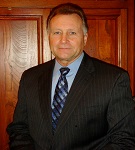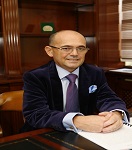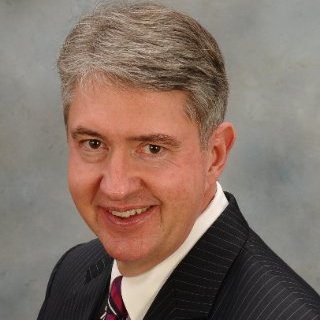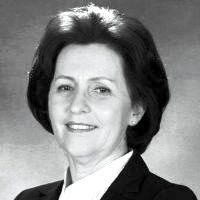Graduated in Biological Sciences (D.Sc.) and in Medicine and Surgery (M.D.) - Associate Professor of Pharmacology at University of Pavia -Teaching Pharmacology for students in Biological Sciences and in Chemistry - Visiting: (1) Department of Neurology and (2) Cerebral Metabolism Research Laboratory, University of Lund, Sweden; (3) Department of Psychobiology, University of California ICI, U.S.A.; (4) Max Plank Institute for Neurochemistry, University of Gottingen, Germany; (5) San Diego Alzheimer’s Disease Research Center, University of California, San Diego, U.S.A.. Research activities: biochemical studies (Functional Proteomics and Metabolomics) on Physiopathology and Pharmacology of the Central Nervous System in experimental conditions of hypoxia, ischaemia, hyperammoniaemia, ipoglycaemia on the cerebral energy metabolism and actions of drugs on the brain energy state; molecular mechanisms of ageing and drugs' interference; the study of Parkinson’s disease and drugs' actions in Dementia; clinical studies on Molecular Medicine and Human Genetics on patients affected by neurological diseases (Dementia) or Alzheimer’s disease. Scientific research activity: 349 total papers: no. 129 on peer international reviews (IF about 350, only ISI publications); no. 66 Congress Proceedings and Acts; no. 154 communications in International Meetings, participating to no. 219 scientific Congress; officially invited to no. 214 Congress since 1993; from 2010 no. 56 as speaker; 9 Member of Organizing Committee or Session Chair/Co-Chair. International appointments as: (A) International ad hoc Reviewer for: - Research Founding Grants (Neuroscience) of The Wellcome Trust Foundation, London, United Kingdom (since 1994) - British Medical Council (asked 2014) inserted as - Reviewer’s Database for Founding of United Kingdom SBS, North Star House, Swinodon, U.K. - Listed as International Expert for the evaluation of Research Grant Programs of the European Commission Research Directorate General, Life Sciences: Health Research, European Union, Brussels. - Reviewer’s Database of Journal of Neuroscience - Reviewer’s Database of European Journal of Neurology And Committee Member of Italian Ministry for Scientific Research Grants (MIUR). (B) Member of the International Experts Panel of the Medical Science Monitor (since 2003), Albertson, New York, U.S.A. (C) Participant to ex Internship Program for U.S.A. students of New York Academy of Science, New York, U.S.A. Accredited Researcher for grants at National Institute of Health (NIH - U.S.A.). (D) Medical Credits at San Diego Alzheimer’s Disease Research Center Conference of University of California, San Diego, U.S.A. (E) Member of the Editorial Boards of: - Member of the Science Advisory Board – Arlington, U.S.A.. - Member of the Editorial Board of “Neurological Disorders & Therapy†– U.S.A. - VIP Member of EB of Neural Regeneration Research, Supervisor Ministry of Health - China (until 2013). - Member of EB of Journal of Neurological Disorders - Member of EB of “Aging and Neurodegeneration†– Anhui Medical University, China - Academic Editor of International Neuropsychiatric Disease Journal. - Member of EB of Journal of Depression and Anxiety – Los Angeles, California, U.S.A.. - Member of EB of International Journal of Emergency Mental Health and Human Resilience – Foster City, California, U.S.A.. - Member of EB of International Journal of Neurology Research – Sheung Wan, Hong Kong (China) - Member of EB of Journal of Neurology and Neuroscience – Wilmington City, Delaware, U.S.A.. (N) ad hoc Reviewer for over of 25 Journals: (in 1989) for Circulation Research; reviewer (from 1989) for Mechanisms of Ageing and Development; reviewer (in 2003) for Molecular Brain Research; reviewer (in 2004) of the Cochrane Dementia and Cognitive Improvement Group, Department of Clinical Gerontology, Oxford, U.K.; reviewer (since 2004) for Experimental Gerontology; reviewer (in 2004) for the “Bioastronautics Critical Path Roadmap Documentâ€, Bioastronautics Research Division of NASA, U.S.A.; reviewer (since 2004) of The Journal of Clinical Pharmacology; reviewer (from 2011) of Complementary Medicine and Drug Discovery; reviewer (in 2011) for Drugs Today, Prous Thomson Reuters; reviewer (in 2011) for Neuropharmacology, Vascular Pharmacology, Journal of Neurological Disorder; reviewer (in 2012) for Vascular BMC Neurology; reviewer (in 2013) for Journal Neuroscience Research, Free Radical Research, Pharmacological Reports, PLOS ONE, Journal of Cytology & Histology, Neurological Research; reviewer (from 2014) for Neurochemical Research, Neural Regeneration Research, Journal Neurological Disorders (4 times), Molecular Neurobiology, Journal Proteome Research (3 times), Neuroscience Letters (3 times), Recent Patents on CNS Drug Discovery (Bentham Science Eds), Neuroscience Research, British Medical Journal, Metabolic Brain Disease.


















